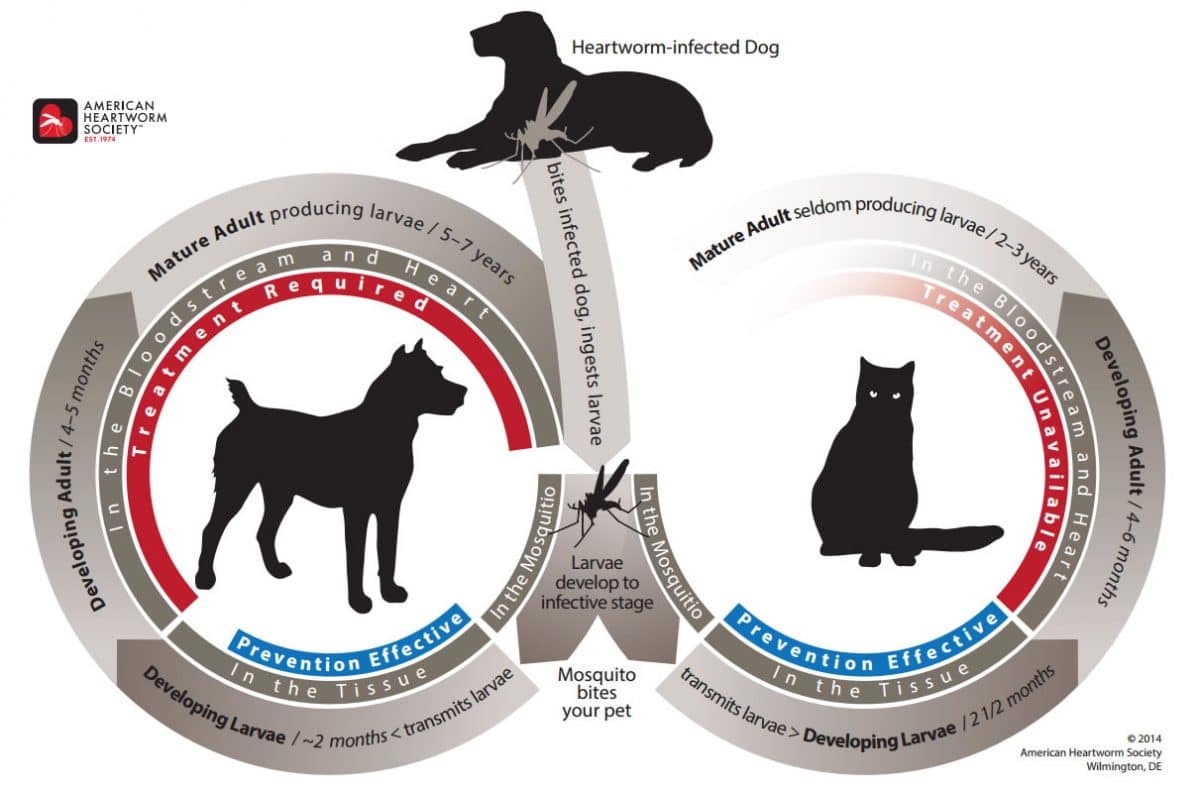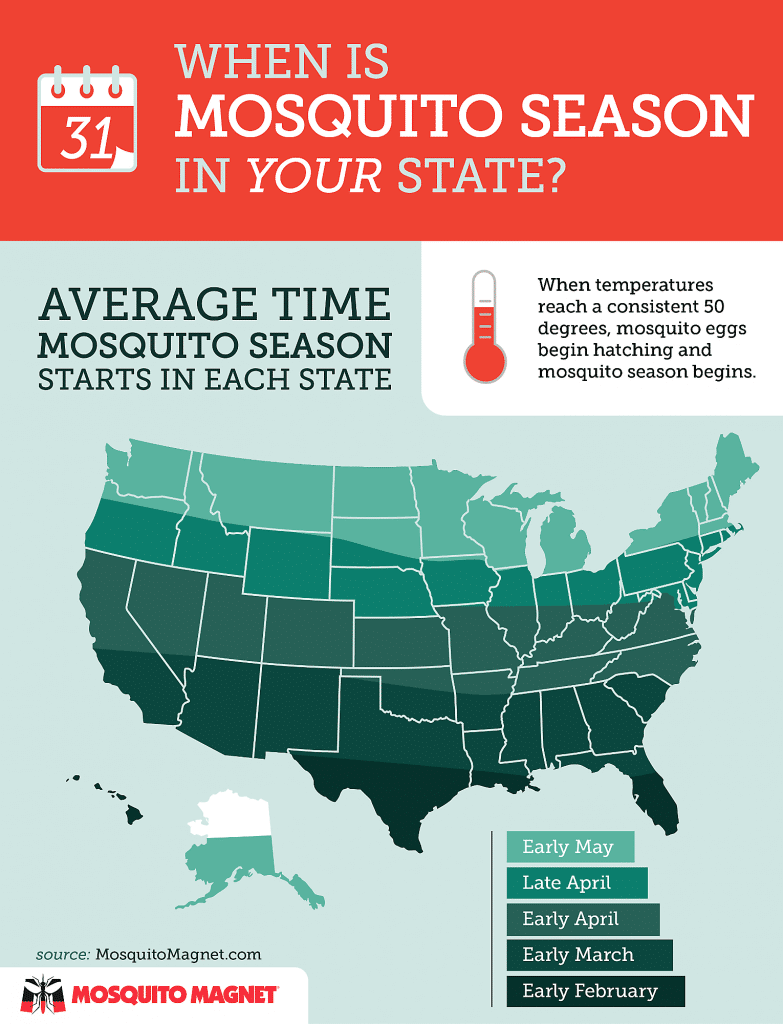April is National Heartworm Awareness Month. Heartworm disease is a serious and potentially fatal disease in pets. Heartworms are foot-long worms that live in the heart, lungs and associated blood vessels of affected pets. They cause severe lung disease, heart failure and damage to other organs in the body.
Pets get the heartworm parasite through the bite of an infected mosquito. Once in the animal’s skin, the parasite undergoes a series of lifecycle changes and makes its way to the bloodstream over the course of 3-4 months. From there, it travels to the heart and lungs. Lodging in the small blood vessels, the 1.5-inch worms grow at an astonishing rate, pushing into ever-larger blood vessels. The worms do more than just physically obstruct blood vessels. They also secrete substances that damage the vessels. This damage leads to high blood pressure and weakening of the heart muscle and lungs.

Heartworm in Dogs and Cats
Dogs are much more likely to get heartworm than cats. There are a couple of reasons why. First, indoor cats don’t get much exposure to mosquitos. Second, most worms in cats do not survive to the adult stage. Cats can, however, still experience long-term and serious damage in the form of Heartworm Associated Respiratory Disease.
The symptoms of heartworm infection can be mild at first. Your dog may develop a nagging cough, may tire easily, and may lose its appetite. Cats can have similar symptoms, along with vomiting and/or attacks that sound like asthma.
Sadly, there is no effective heartworm treatment for cats. While it is possible to treat dogs for heartworm, the treatment can take several months and require close monitoring of the animal as well as tight restriction of its activity. Even if treatment is successful, the damage can be permanent and cause a severely reduced quality of life for your beloved pet.
Heartworm Prevention
Prevention, then, is the goal. At Liberty Animal Hospital, we recommend annual testing combined with monthly preventive medication. Testing is necessary to assess the animal’s infection status at first, and then to be sure the prevention is working as intended. Monthly preventive medication is necessary because of the long life-cycle of the parasite. We also recommend monthly preventive medication because it establishes a positive habit and reduces the risk of a dose being missed.
Call us at (720) 306-9900 with any questions or concerns about heartworm or any other aspect of your pet’s health.
Related: When is Mosquito Season in Colorado?
According to mosquito trap manufacturer Mosquito Magnet, mosquito season is generally considered to begin once the temperature is consistently 50° Fahrenheit or higher. In Colorado, that is typically in early April…but can be quite a bit earlier than that in any given year. When does it end? Mosquito Magnet has this to say: “The first frost is usually a reliable sign of the end of mosquito season. However, it’s possible that some hibernating mosquitoes will emerge during unexpected warm spells during winter, only to return to their hiding places when the temperature drops.” This makes year-round prevention even more important.

